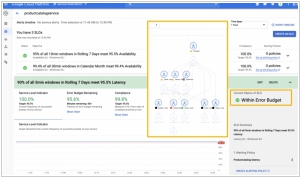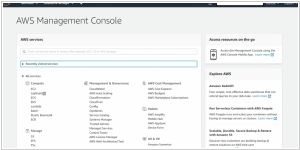AWS Outposts vs Google Anthos
July 23, 2023 | Author: Michael Stromann
8

Anthos is an open application modernization platform that enables you to modernize your existing applications, build new ones, and run them anywhere. Built on open source technologies pioneered by Google—including Kubernetes, Istio, and Knative—Anthos enables consistency between on-premises and cloud environments.
AWS Outposts and Google Anthos are two solutions aimed at addressing different aspects of hybrid and multi-cloud management. AWS Outposts is a hardware-based offering by Amazon Web Services (AWS) that extends AWS infrastructure and services to customers' on-premises data centers. It allows organizations to run AWS services locally, providing a seamless hybrid cloud experience and maintaining data residency and low-latency requirements. In contrast, Google Anthos is a cloud-native platform by Google Cloud that focuses on enabling consistent application management across multiple clouds and on-premises environments using Kubernetes. Anthos empowers enterprises to modernize their applications and achieve greater agility while leveraging Google's expertise in managing containerized workloads.
See also: Top 10 Private Cloud platforms
See also: Top 10 Private Cloud platforms
AWS Outposts vs Google Anthos in our news:
2019. AWS Outposts brings Amazon cloud to data center

Amazon has officially launched Outposts, a private cloud hardware stack that can be installed in your own data center. Certain workloads, such as factory operations, require close proximity to compute resources due to low-latency requirements. Outposts aims to address this need, distinguishing itself from existing solutions by providing a seamless connection between on-premises hardware and the cloud. The hardware stack is equipped with a comprehensive range of services, including Amazon Elastic Compute Cloud (EC2), Amazon Elastic Block Store (EBS), Amazon Virtual Private Cloud, Amazon ECS, Amazon Elastic Kubernetes Service, and Amazon EMR. With this move, Amazon joins Microsoft and Google, who already offer their own hybrid cloud solutions to customers: Azure Arc and Google Anthos, respectively.




